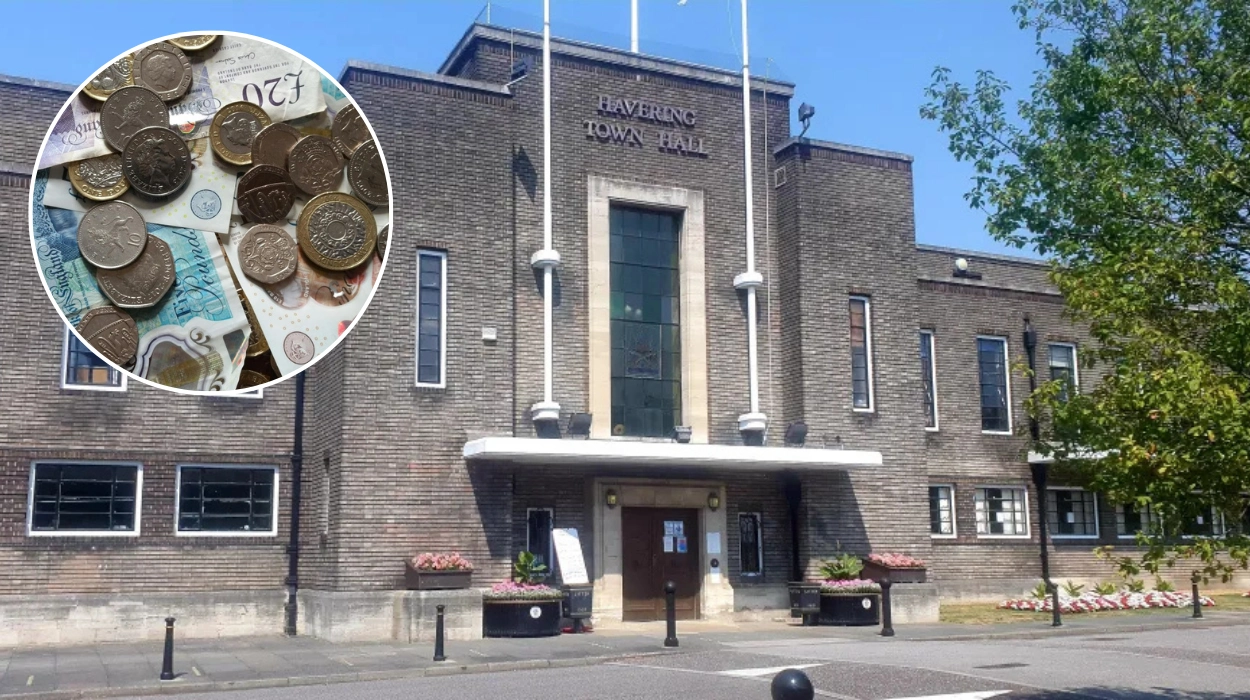Key Points:
- Havering Council faces a £71 million budget gap for the 2025/26 financial year, including last year’s £32.5 million shortfall.
- The council has already made £160 million in cuts over the past 15 years, leaving few options for further savings.
- Cllr Chris Wilkins, Cabinet Member for Finance, warns that without government reform, future shortfalls could reach £150 million.
- Havering claims it is being forced to take out a loan, which residents will have to repay with interest.
- The current government funding formula is based on outdated 2011 census data, failing to reflect modern needs.
- Havering was allocated £40 million in government funding this year but may need to borrow up to £90 million to stay afloat.
- The government’s £600 million emergency grant excluded Havering, despite financial struggles.
- Council tax to rise by 4.99%—the maximum allowed without a referendum.
- Havering has the fifth highest council tax rate in London, with Band D households paying £2,208 per year.
- The council voted to close three libraries to save money.
- The borough’s housing crisis led to an overspend of £6.1 million last year due to costly temporary accommodation.
- At least 50 councils are expected to require financial aid this year, up from 19 last year.
- Havering is still waiting for government approval to borrow the funds it needs to avoid issuing a Section 114 bankruptcy notice.
Havering Council Warns of Financial Crisis Amid Government Funding Shortfall
Havering Council faces an unprecedented financial crisis, with a £71 million budget gap forcing drastic measures, including increased council tax and borrowing.
- Key Points:
- Havering Council Warns of Financial Crisis Amid Government Funding Shortfall
- Why Is Havering Struggling Financially?
- Why Was Havering Left Out of the Government’s £600m Emergency Fund?
- Will Council Tax Go Up?
- What Cuts Has the Council Made?
- How Many Councils Are Facing Financial Trouble?
- Will Havering Be Allowed to Borrow the Money It Needs?
As Havering Council enters the 2025/26 financial year, it is confronted with a £71 million budget deficit, a situation councillors say is unsustainable without fundamental changes to government funding.
The east London borough has already cut £160 million from services over the past 15 years. Now, with limited options left, council leaders say they are being forced to borrow millions, shifting the burden onto residents.
Why Is Havering Struggling Financially?
The crisis stems from a funding formula based on outdated 2011 census data, which council leaders say fails to reflect modern population needs.
Cllr Chris Wilkins, Cabinet Member for Finance, said:
“Unless there is a complete change of formula and the way the data is examined, I will be here saying the same thing next year.
“We may not be asking for £70m or £80m—it could be up to £150m.”
Havering was allocated £40 million in government funding for the upcoming year but estimates it will need to borrow up to £90 million to stay financially stable.
The loan, known as a ‘capitalisation direction’, must be repaid with interest over the next 20 years.
Why Was Havering Left Out of the Government’s £600m Emergency Fund?
To help struggling councils, the government set aside a £600 million emergency recovery grant, the first of its kind. However, Havering did not receive any of this funding.
Kathy Freeman, Havering’s Finance Director, called this decision “disappointing”, stating the funding was based on deprivation levels rather than actual need.
Will Council Tax Go Up?
In response to the financial strain, the council plans to raise council tax by 4.99%, the maximum allowed without triggering a public referendum.
Havering already has the fifth highest council tax rate in London, with Band D households paying £2,208 per year. By comparison, residents in Redbridge pay £2,089, while those in Barking & Dagenham pay £2,003.
Cllr Wilkins stated:
“As a cabinet, we are in agreement we do not want to put our council tax up [past 4.99%].”
The final council tax decision will be made at a full council meeting later this month.
What Cuts Has the Council Made?
Due to rising costs in mandatory services, such as housing, adult social care, and children’s services, Havering now spends 80% of its budget on legally required services.
As a result, the council has been forced to make controversial cuts, including a vote to close three libraries earlier this month.
Housing costs have also surged, with the borough overspending by £6.1 million on temporary accommodation last year. Due to a shortage of local homes, many families are placed in hotels and bed-and-breakfasts, significantly increasing costs.
How Many Councils Are Facing Financial Trouble?
Havering is not alone.
Last year, 19 local authorities required government bailouts, up from 11 the previous year. This number is expected to rise to 50 this year, as councils struggle with rising costs in housing and social care.
Although councils cannot declare bankruptcy in the commercial sense, they can issue a Section 114 notice, which signals they do not have enough income to meet spending commitments.
If that happens, Whitehall-appointed commissioners will take control of the borough’s finances, imposing strict spending cuts on any non-essential services.
Will Havering Be Allowed to Borrow the Money It Needs?
Despite requesting up to £90 million in government loans, Havering has not yet received confirmation from the government that it will be allowed to borrow the funds.
Cllr Wilkins stressed that the financial strain has been years in the making, stating:
“This hasn’t happened overnight. The increased demand, unit cost, and complexity of the people we look after in social services has got much more difficult over the last five years.”
With no clear solution in sight, Havering’s financial future remains uncertain as it awaits a decision from central government.



